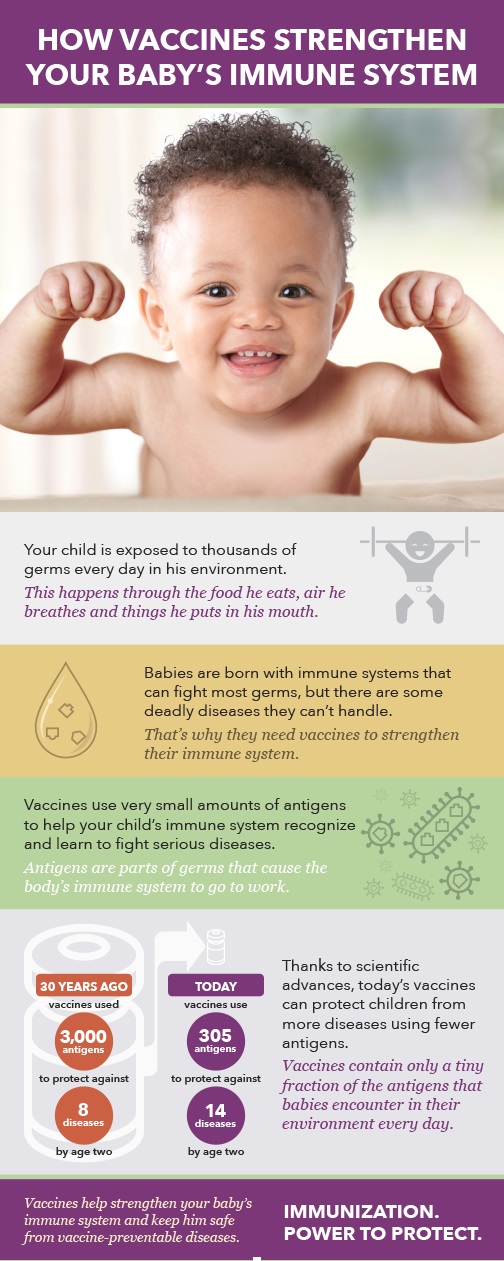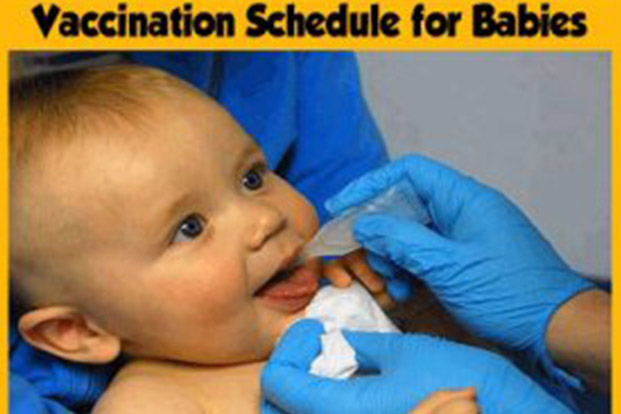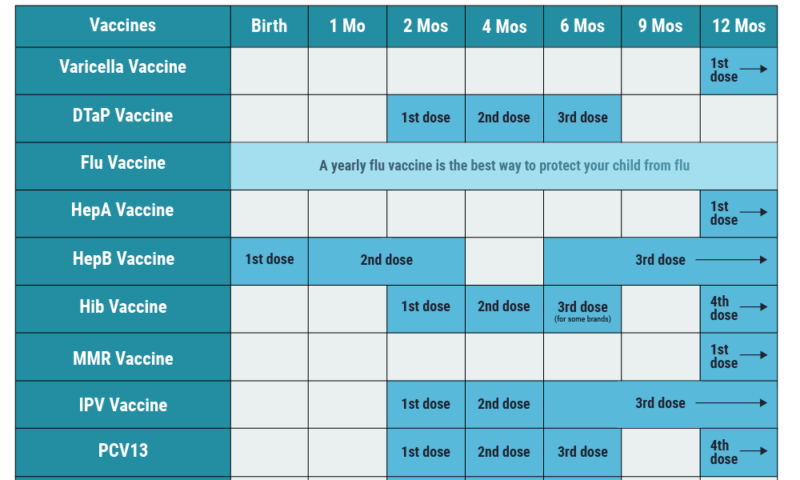
Tiny Shots, Big Protection
Welcome to "Tiny Shots, Big Protection," your indispensable guide to navigating the intricate world of essential baby vaccines. In this detailed guide, we'll unravel the complexities of how, why, when, where, and which vaccines are crucial for your baby's health. By the end, you'll possess the knowledge and confidence needed to make informed decisions for your little one's well-being.
Why Vaccine :

Disease Prevention:
Vaccines protect babies from severe and potentially life-threatening diseases.
Example: The polio vaccine prevents paralysis and other severe complications associated with poliovirus infection.
Community Immunity:
Vaccination contributes to herd immunity, protecting those who can't receive vaccines.
Example: By vaccinating your baby, you contribute to preventing outbreaks, protecting vulnerable individuals, such as infants who are too young to be vaccinated.
How Vaccine :

Administered by Professionals:
Vaccines are administered by healthcare professionals, such as doctors or nurses, ensuring precision and safety.
Example: A qualified nurse will administer the Hepatitis B vaccine shortly after birth, ensuring proper technique and adherence to safety protocols.
Injection Method:
Most vaccines are injected into the muscle, allowing the immune system to generate a robust response.
Example: The DTaP vaccine, protecting against diphtheria, tetanus, and pertussis, is commonly administered via intramuscular injection.
Combination Vaccines:
Some vaccines are combined to reduce the number of shots, ensuring comprehensive protection.
Example: The MMR vaccine combines protection against measles, mumps, and rubella in a single shot, minimizing the number of injections required.
Long-Term Health:
Vaccines contribute to overall health by reducing the prevalence of infectious diseases.
Example: The varicella vaccine prevents chickenpox, reducing the risk of complications such as bacterial infections or pneumonia.

When Vaccine :
Vaccination Schedule:
Follow the recommended schedule provided by healthcare professionals for timely protection.
Example: The initial doses of DTaP, Hib, IPV, PCV, and RV are typically administered at 2, 4, and 6 months to provide early and robust protection.
Timely Immunization:
Administering vaccines on time is crucial for optimal protection, especially during the first few months of life.
Example: Delaying the first dose of the hepatitis B vaccine may leave a newborn vulnerable to infection during a critical period.

Booster Shots:
Some vaccines, like DTaP and MMR, require booster shots to maintain immunity.
Example: Booster doses of the DTaP vaccine are recommended at 15-18 months and 4-6 years to reinforce protection against diphtheria, tetanus, and pertussis.
Where Vaccine :
Medical Facilities:
Vaccines are primarily administered in healthcare settings, ensuring the presence of trained professionals and necessary equipment.
Example: Your pediatrician's office or a local clinic is a common setting for administering routine vaccines.
Mobile Clinics:
In some communities, mobile clinics may provide vaccine services, addressing accessibility challenges.
Example: A mobile clinic visiting underserved areas can offer convenient access to vaccines for families who may face transportation barriers.
Pharmacies:
Certain vaccines may be available at pharmacies, administered by qualified personnel.
Example: Some pharmacies offer flu shots for eligible age groups, providing a convenient option for parents to ensure their child's vaccination.
How (Frequency):
Regular Check-ups:

Routine well-baby check-ups are opportunities to discuss and schedule vaccinations.
Example: During a 2-month check-up, your healthcare provider will discuss and administer vaccines like DTaP, Hib, IPV, PCV, and RV.
Vaccine Information Statements (VIS):
Healthcare providers provide a Vaccine Information Statement (VIS) before each vaccination.
Example: Before administering the MMR vaccine, your healthcare provider will provide a VIS detailing the benefits and potential risks associated with the vaccine.
Communication with Healthcare Providers:
Maintain open communication with healthcare providers to address any concerns or questions.
Example: If you have concerns about vaccine ingredients or potential side effects, discuss these with your healthcare provider for clarification and guidance.
Which (Age Group):
Newborns and Infants:
Many vaccines are administered in the first few months of life, providing early protection.
Example: The Hepatitis B vaccine is typically given shortly after birth to protect against transmission from an infected mother.
Toddlers and Preschoolers:
Additional vaccines are introduced as your child grows, protecting against a broader range of diseases.
Example: Booster doses of the IPV vaccine are recommended at 4-6 years to enhance protection against poliovirus.
Pre-Teens and Teens:
Some vaccines are recommended during adolescence, preparing teenagers for potential exposure in communal settings.
Example: The HPV vaccine is recommended for pre-teens to protect against certain cancers associated with human papillomavirus infection.
When Vaccine (Chart List):
Birth: Hepatitis B
2 months: DTaP, Hib, IPV, PCV, RV
4 months: DTaP, Hib, IPV, PCV, RV
6 months: DTaP, Hib, IPV, PCV, RV
12-15 months: MMR, VAR, HepA, PCV, Hib
4-6 years: DTaP, IPV, MMR, VAR

Conclusion:
Understanding the importance of essential baby vaccines empowers parents to make informed decisions for their child's health. By adhering to recommended schedules, maintaining open communication with healthcare providers, and staying informed about the benefits of vaccination, you play a crucial role in ensuring your little one's well-being. Embrace the power of tiny shots for big protection, and let these vaccinations pave the way for a bright and healthy future! Stay informed, stay protected, and embark on this journey with confidence, armed with knowledge that will keep your baby safe and healthy.





Comment